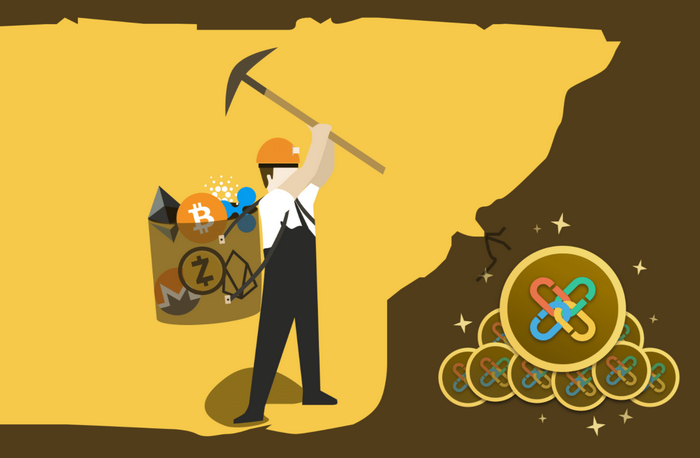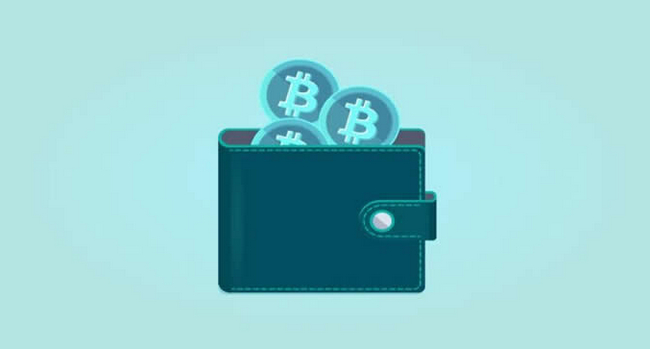Cryptocurrency Encyclopedia
Explore the future together and let everyone know the world of cryptocurrency equally!
-

- What does cryptocurrency mining mean
- Sep 18,2024 at 07:01pm
What is Cryptocurrency Mining?
Cryptocurrency mining refers to the process of verifying and adding new transaction records to the blockchain, which is a shared and immutable ledger used to record cryptocurrency transactions. The miners who perform this task are rewarded with cryptocurrencies for their efforts.
How Does Cryptocurrency Mining Work?
Solving Complex Algorithms: Miners use specialized hardware or powerful computers to solve complex mathematical algorithms.
Verifying Transactions: Once a miner solves an algorithm, they receive a block of transactions that they have verified.
Adding to the Blockchain: The verified block is then added to the blockchain, creating a permanent and transparent record of the transactions it contains.
Rewarding Miners: As compensation for their work, miners receive a predetermined amount of cryptocurrency.
Benefits of Cryptocurrency Mining
Blockchain Security: Mining helps secure the blockchain by making it more computationally difficult for malicious actors to alter transaction records.
Decentralization: Mining contributes to the decentralized nature of cryptocurrencies by distributing the validation process among many participants.
Token Distribution: Miners play a crucial role in the distribution of new cryptocurrencies, as they are rewarded for verifying transactions.
Risks of Cryptocurrency Mining
Hardware Costs: Mining requires specialized equipment that can be expensive to purchase and maintain.
Energy Consumption: Mining processes can consume significant amounts of electricity, raising concerns about environmental impact.
Complexity: Mining requires technical knowledge and constant upkeep to ensure optimal performance.
Alternatives to Cryptocurrency Mining
In addition to mining, there are other ways to participate in the cryptocurrency ecosystem:
Trading and Investing: Individuals can buy and sell cryptocurrencies on exchanges without directly mining them.
Staking: Certain cryptocurrencies offer rewards for owners who hold their coins in a digital wallet, contributing to the security of the network.
Cloud Mining: This option allows individuals to rent mining equipment from specialized providers, reducing upfront hardware costs.
Conclusion
Cryptocurrency mining plays a vital role in the functioning of blockchain-based systems. While it offers benefits such as security and decentralization, it also comes with risks and challenges. Individuals should carefully consider the potential rewards and drawbacks before deciding whether to engage in mining.
-

- Top 10 most popular virtual currency wallets in 2024
- Sep 18,2024 at 06:48pm
Top 10 Most Popular Virtual Currency Wallets in 2024
With the increasing popularity of virtual currencies, secure and reliable storage solutions have become essential. As a result, numerous virtual currency wallets have emerged, offering a range of features and functionalities. Based on market research and industry analysis, here's a comprehensive list of the top 10 most popular virtual currency wallets in 2024:
1. MetaMask
Type: Browser extension and mobile app
Supported currencies: Ethereum, ERC-20 tokens, and other EVM-compatible blockchains
Features: Easy integration with decentralized applications (dApps), access to decentralized finance (DeFi), and support for hardware wallets.
2. Trust Wallet
Type: Mobile app
Supported currencies: A wide range of coins and tokens, including Bitcoin, Ethereum, Binance Coin, and Dogecoin
Features: Built-in DApp browser, staking rewards, and the ability to interact with decentralized exchanges (DEXs).
3. Ledger Nano X
Type: Hardware wallet
Supported currencies: Bitcoin, Ethereum, Litecoin, and numerous other cryptocurrencies
Features: High security with a built-in screen and Bluetooth connectivity, allowing for secure transactions without compromising privacy.
4. Coinbase Wallet
Type: Software wallet and mobile app
Supported currencies: Bitcoin, Ethereum, Litecoin, and other major cryptocurrencies
Features: User-friendly interface, integration with Coinbase exchange, and support for a variety of digital assets.
5. Exodus
Type: Software wallet and mobile app
Supported currencies: Bitcoin, Ethereum, Litecoin, and over 200 other cryptocurrencies
Features: Customizable interface, встроенный обмен, and a focus on beginner-friendliness.
6. Binance Smart Chain Wallet
Type: Extension and mobile app
Supported currencies: Binance Coin (BNB), Binance USD (BUSD), and other tokens based on the Binance Smart Chain
Features: Fast and low-cost transactions, access to BSC-based dApps, and support for hardware wallets.
7. Trezor Model T
Type: Hardware wallet
Supported currencies: Bitcoin, Ethereum, Litecoin, and various other cryptocurrencies
Features: Enhanced security with a touchscreen and tamper-evident design, and support for multiple coins in a single device.
8. SafePal S1
Type: Hardware wallet
Supported currencies: Bitcoin, Ethereum, Litecoin, and a growing number of cryptocurrencies
Features: Secure cold storage, 12-word recovery phrase, and a user-friendly interface.
9. Crypto.com DeFi Wallet
Type: Mobile app
Supported currencies: Bitcoin, Ethereum, Litecoin, and over 100 other cryptocurrencies
Features: Control over private keys, staking rewards, and the ability to access DApps through the built-in browser.
10. Phantom Wallet
Type: Browser extension and mobile app
Supported currencies: Solana (SOL) and other SPL tokens
Features: Access to Solana-based dApps, staking rewards, and a sleek and user-friendly interface.
These are the top 10 virtual currency wallets, each offering different advantages depending on specific user needs. While hardware wallets provide the highest level of security, software wallets and browser extensions offer convenience and accessibility. Consider your security requirements, ease of use, and supported currencies when selecting the most suitable wallet for your virtual currency needs.
-
$1INCH Airdrop: Claim Your Fortune!
- Sep 20,2024 at 01:59pm
-
Ripple Whales Go on a Massive Buying Spree – Will XRP Price Explode?
- Sep 20,2024 at 01:58pm
-
The Ultimate Guide to AXELAR Airdrop: How to Claim Your Tokens
- Sep 20,2024 at 01:58pm
-
Storj Airdrop is Here — Claim Your Tokens Today!
- Sep 20,2024 at 01:53pm
-
Bitcoin Reaches New Highs Thanks to the Fed
- Sep 20,2024 at 01:50pm
-
Bitcoin (BTC) Price Pumps 3% as Whales Accelerate Accumulation Pace
- Sep 20,2024 at 01:48pm


















































